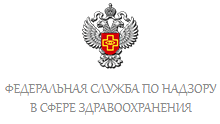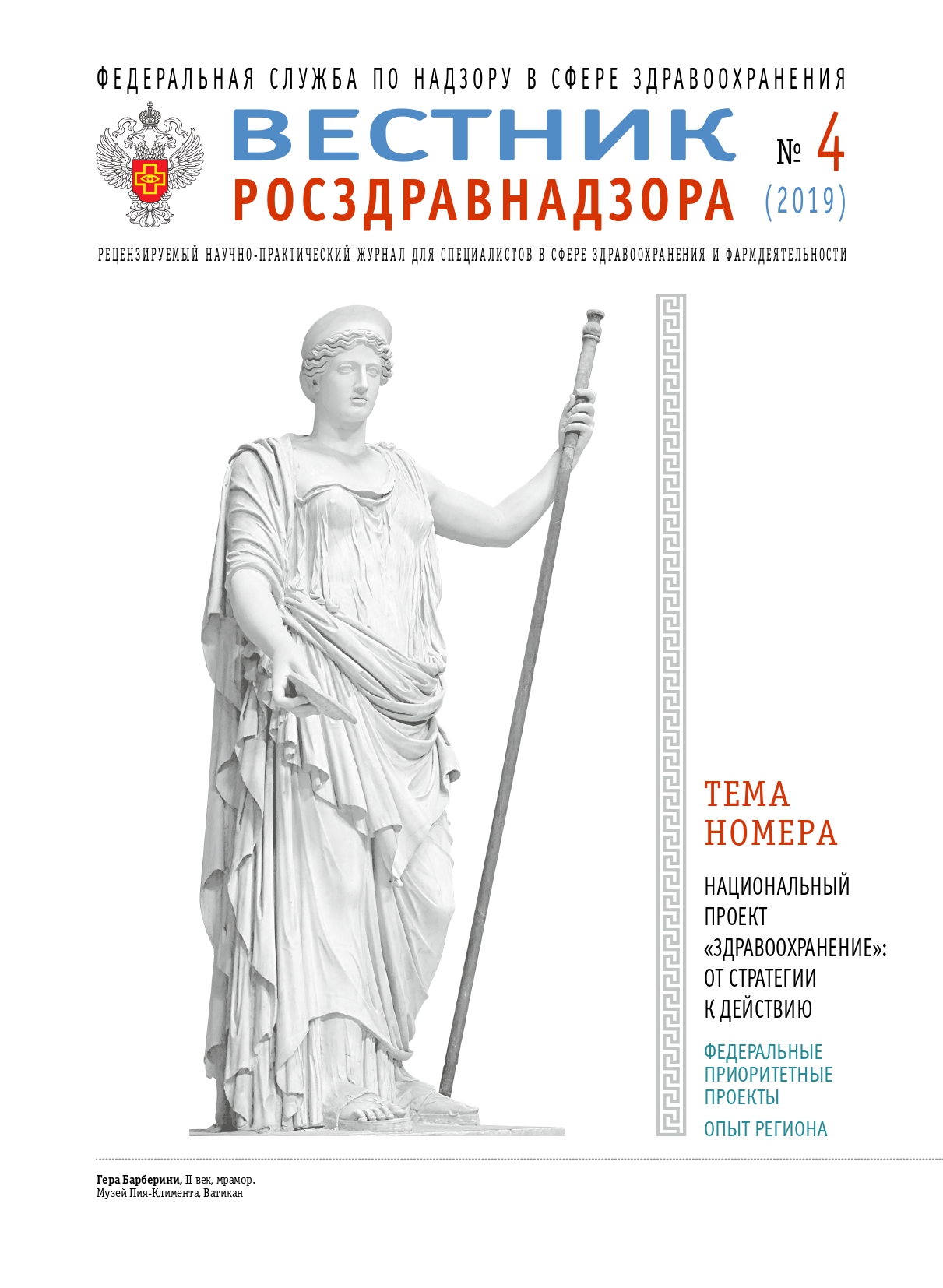Санкт-Петербург, г. Санкт-Петербург и Ленинградская область, Россия
ГРНТИ 76.35 Прочие отрасли медицины и здравоохранения
Представлены перспективы и возможные барьеры при реализации программы льготного лекарственного обеспечения (ЛЛО) пациентов высокого сердечно-сосудистого риска. Наибольшую клиническую пользу и экономическую оправданность следует ожидать от ЛЛО, во-первых, препаратами с доказанной эффективностью в отношении предотвращения неблагоприятных событий, и во-вторых, в группах высокого риска, вносящих наибольший вклад в структуру смертности населения.
сердечно-сосудистые заболевания, управление сердечно-сосудистым риском, льготное лекарственное обеспечение, приверженность
1. Benjamin EJ, Muntner P, Alonso A, et al.; on behalf of the American Heart Association Council on Epidemiology and Prevention Statistics Committee and Stroke Statistics Subcommittee. Heart disease and stroke statistics - 2019 update: a report from the American Heart Association Circulation. 2019 Mar 5;139(10):e56-e528.
2. Wilkins E, Wilson L, Wickramasinghe K, et al. European Cardiovascular Disease Statistics 2017. European Heart Network, Brussels.
3. Данные Федеральной службы государственной статистики (Росстат), 2018 год, http://www.gks.ru, дата обращения 11.07.2019.
4. Jernberg T, Hasvold P, Henriksson M, et al. Cardiovascular risk in post-myocardial infarction patients: nationwide real world data demonstrate the importance of a long-term per- spective. Eur Heart J 2015; 36: 1163-1170.
5. Feng W, Hendry RM, Adams RJ. Risk of recurrent stroke, myocardial infarction, or death in hospitalized stroke patients. Neurology. 2010; 74:588-593.
6. Allen NB, Holford TR, Bracken MB, et al. Trends in one-year recurrent ischemic stroke among the elderly in the USA: 1994-2002. Cerebro- vasc Dis. 2010;30:525-532.
7. Hillen T, Coshall C, Tilling K, et al. Cause of stroke recurrence is multi- factorial: patterns, risk factors, and outcomes of stroke recurrence in the South London Stroke Register. Stroke. 2003;34:1457-1463.
8. Steger C, Pratter A, Martinek-Bregel M, et al. Stroke patients with atrial fibrillation have a worse prognosis than patients without: data from the Austrian Stroke registry. Eur Heart J. 2004 Oct;25(19):1734-40.
9. Yang E, Stokes M, Johansson S, et al. Clinical and economic outcomes among elderly myocardial infarction survivors in the United States. Cardiovasc Ther. 2016;34:450-459
10. Мареев В. Ю., Фомин И. В., Агеев Ф. Т., и др. Сердечная недостаточность: хроническая (ХСН) и острая декомпенсированная (ОДСН). Диагностика, профилактика и лечение. Кардиология. 2018;58 (S6):8-164).
11. Maggioni AP, Dahlstrom U, Filippatos G, et al. EURObservational Research Pro- gramme: regional differences and 1-year follow-up results of the Heart Failure Pilot Survey (ESC-HF Pilot). Eur J Heart Fail 2013;15:808-817.
12. Ma TT, Wong ICK, Man KKC, et al. Effect of evidence-based therapy for secondary prevention of cardiovascular disease: Systematic review and meta-analysis. PLoS One. 2019 Jan 18;14(1):e0210988. doi:https://doi.org/10.1371/journal.pone.0210988. eCollection 2019.
13. Burnett H., Earley A., Voors AA., et al. Thirty Years of Evidence on the Efficacy of Drug Treatments for Chronic Heart Failure With Reduced Ejection Fraction: A Network Meta-Analysis. Circ Heart Fail. 2017 Jan;10(1). pii:e003529. doi:https://doi.org/10.1161/CIRCHEARTFAILURE.116.003529.
14. Choudhry NK, Avorn J, Antman EM, et al. Should patients receive secondary prevention medications for free after a myocardial infarction? An economic analysis. Health Aff (Millwood) 2007;26:186-94.
15. Choudhry NK, Patrick AR, Antman EM, et al. Cost-effectiveness of providing full drug coverage to increase medication adherence in post-myocardial infarction Medicare beneficiaries. Circulation 2008;117:1261-8.
16. Dhalla IA., Smith MA, Choudhry NK, Denburg AE. Costs and benefits of free medications after myocardial infarction. Healthc Policy. 2009;5(2):68-86.
17. Ito K., Avorn J, Shrank WH, et al. Long-term cost-effectiveness of providing full coverage for preventive medications after myocardial infarction. Circ Cardiovasc Qual Outcomes. 2015;(3):252-9.
18. Khatana SAM, Khatana SAM, Bhatla A, Nathan AS, et al. Association of Medicaid Expansion With Cardiovascular Mortality. JAMA Cardiol. 2019 Jun 5. doi:https://doi.org/10.1001/jamacardio.2019.1651.
19. Choudhry NK, Avorn J, Glynn RJ, et al.; Post-Myocardial Infarction Free Rx Event and Economic Evaluation (MI FREEE) Trial. Post-Myocardial Infarction Free Rx Event and Economic Evaluation (MI FREEE) Trial. Full coverage for preventive medications after myocardial infarction. N Engl J Med. 2011;365(22):2088-97.
20. Wang TY, Kaltenbach LA, Cannon CP, et al. Effect of Medication Co-payment Vouchers on P2Y12 Inhibitor Use and Major Adverse Cardiovascular Events Among Patients With Myocardial Infarction: The ARTEMIS Randomized Clinical Trial. JAMA. 2019;321(1):44-55. doi:https://doi.org/10.1001/jama.2018.19791.
21. Kulik A, Desai NR, Shrank WH, et al. Full prescription coverage versus usual prescription coverage after coronary artery bypass graft surgery: analysis from the post-myocardial infarction free Rx event and economic evaluation (FREEE) randomized trial. Circulation. 2013;128(11 Suppl 1):S219-25.
22. Choudhry NK, Fischer MA, Avorn JL, et al. The impact of reducing cardiovascular medication copayments on health spending and resource utilization. J Am Coll Cardiol. 2012;60(18):1817-24.
23. Volpp KG, Troxel AB, Mehta SJ, et al. Effect of Electronic Reminders, Financial Incentives, and Social Support on Outcomes After Myocardial Infarction: The HeartStrong Randomized Clinical Trial. JAMA Intern Med. 2017;177(8):1093-1101.
24. Danchin N, Neumann A, Tuppin P., et al. Impact of free universal medical coverage on medical care and outcomes in low-income patients hospitalized for acute myocardial infarction: an analysis from the French National Health Insurance system. Circ Cardiovasc Qual Outcomes. 2011;4(6):619-25
25. Maron DJ, Boden WE, O'Rourke RA, et al. Multifactorial Intervention for Stable Coronary Artery Disease Optimal Medical Therapy in the COURAGE (Clinical Outcomes Utilizing Revascularization and Aggressive Drug Evaluation). J Am Coll Cardiol 2010;55:1348-58.









